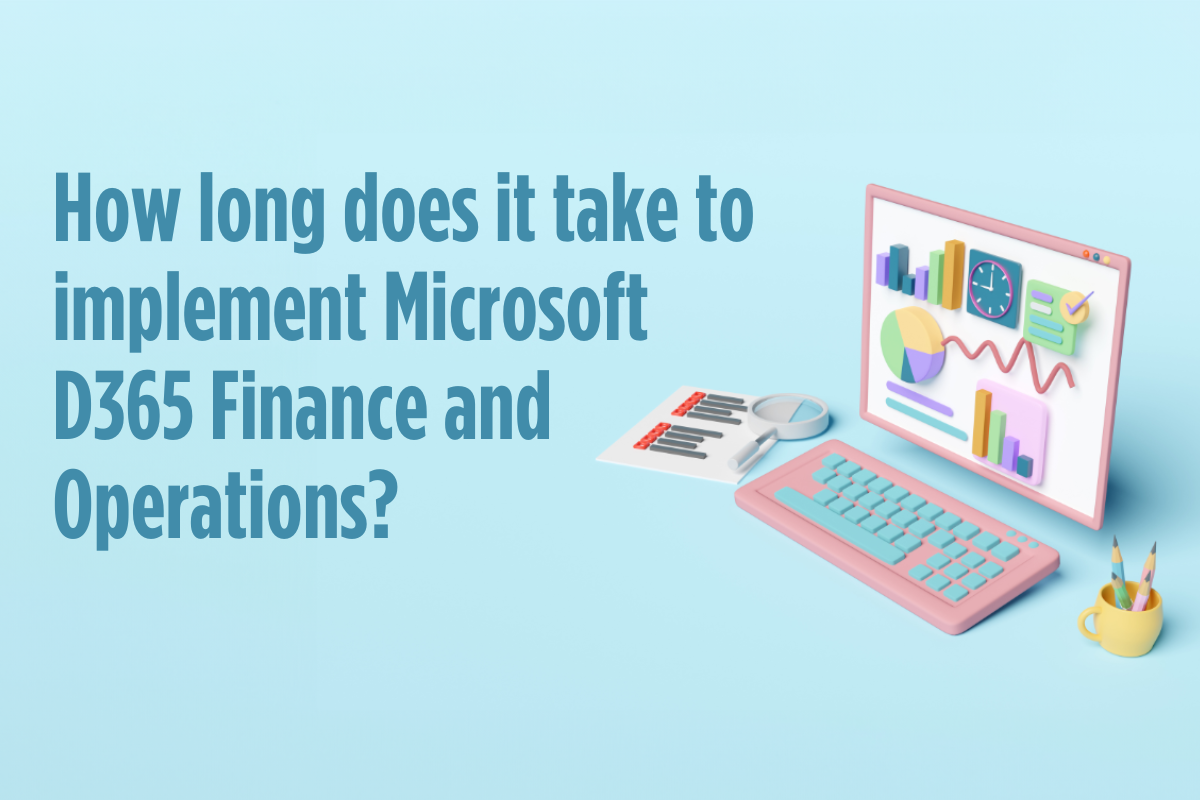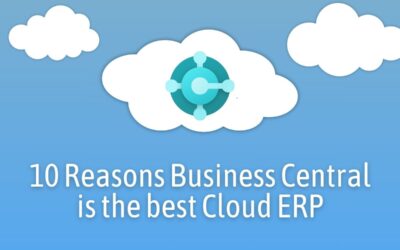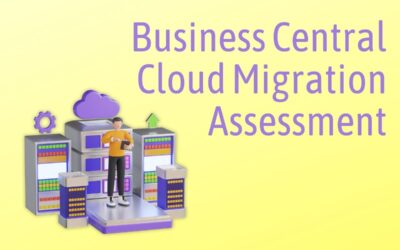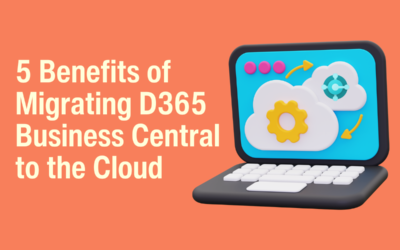Implementing Dynamics 365 Finance & Operations ERP can transform your business processes, but how long does it take?
Key Takeaways
- Small Business: 3-6 months
- Medium Business: 4-12 months
- Large Business: 9-24 months
- Key Factors: Project scope, data migration, customisation, and partner expertise
- Challenges: Scope creep, data quality, resistance to change, training, and integration
How long does it take to implement Microsoft Dynamics 365 Finance and Operations ERP?
The implementation timeline for Microsoft Dynamics 365 Finance and Operations ERP varies by business size: 3-6 months for small businesses, 4-12 months for medium businesses, and 9-24 months for large businesses. Factors such as project scope, data migration, customisation, and partner expertise significantly influence the timeline.
Implementing an Enterprise Resource Planning (ERP) solution in your organisation is a significant undertaking that can transform your business processes and operations. From enhancing efficiency to providing deeper insights into your financials and supply chain, the benefits are substantial.
However, the journey to a successful ERP implementation is paved with numerous decisions and considerations. There are a huge number of variables and factors to decide upon, from narrowing down the software solution that best fits your business’s needs, to finding a partner who aligns with your industry, requirements, budget, and timeline.
If you are reading this blog post, you have likely narrowed down your choices to implementing Dynamics 365 Finance & Operations (now Finance & Supply Chain Management). This decision marks an important step forward, but it also brings with it a series of crucial questions and considerations. Among these may be:
- How long will it take to implement the solution?
- What is the average timeline to implement an ERP solution?
- What factors will impact the implementation timeline?
- How can we ensure a smooth and timely deployment?
Throughout this blog post, we will explore the factors that influence ERP project implementation timelines and provide insights into what you can expect when implementing Dynamics 365 Finance & Operations.
Understanding these factors can help you set realistic expectations and plan effectively for a successful ERP implementation.
What is the average timeline for implementing an F&O ERP solution?
While there is no one-size-fits-all answer for how long it will take to implement an ERP solution, an average guideline for the implementation timeline depending on business size can be around:
- Small business: 3-6 months
- Medium business: 4-12 months
- Large business: 9-24 months
According to the Panorama ERP Report 2023, 49.7% of ERP implementation projects were completed on time, and 8.2% were completed earlier than anticipated.
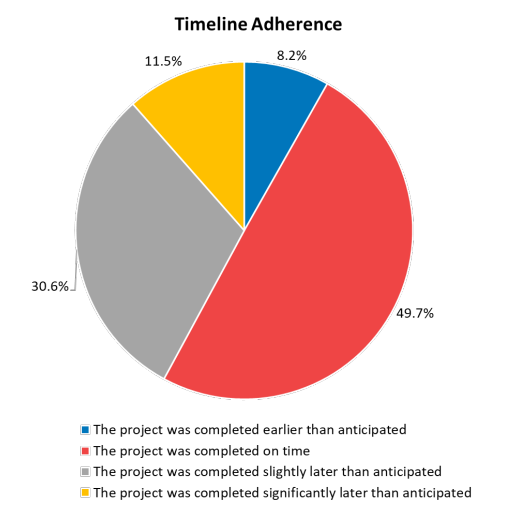
Factors that influence ERP project implementation timelines
Several factors can influence the timeline for an ERP implementation project. Understanding these factors can help organisations plan more effectively and set realistic expectations
Project Scope and Complexity
The broader and more complex the project scope, the longer the implementation will take. Clearly define the project’s objectives, processes, and deliverables to manage complexity and ensure focused efforts.
Organisational Size and Structure
Larger organisations with intricate structures and many users often require more time for ERP implementation. Consider the number of users, departments, and locations involved, as these factors significantly impact the timeline.
Data Migration
Migrating data from legacy systems to the new ERP platform is a critical and time-consuming task. Ensuring data accuracy, consistency, and completeness is essential, and this process can influence the overall timeline.
Customisations & Configuration
Extensive customisations and configurations can extend the implementation timeline. Aim to begin the project utilising standard ERP functionalities where possible and limit customisations to essential needs to streamline the process.
Deployment Methods
The chosen deployment method—whether on-premise, cloud-based, or hybrid—affects the timeline. Cloud-based solutions often offer quicker deployments compared to on-premise installations, which may require more time for setup and infrastructure.
Business Deployment Locations
Implementing ERP across multiple locations or geographies can add complexity and time to the project. Coordination between different sites and adapting to regional requirements are crucial considerations.
Partner Expertise
The experience and expertise of your ERP implementation partner play a significant role in the project timeline. Choose a partner with a proven track record in similar projects to benefit from their knowledge and avoid potential pitfalls.
Plan Your Dynamics 365 ERP Implementation
Wondering how long it takes to implement Microsoft Dynamics 365 Finance and Operations ERP? Get expert insights and a tailored timeline for your business.
5 challenges to look out for during ERP implementation
While there are significant benefits that can come from Implementing an ERP solution, projects often come with a number of challenges that you need to watch out for to ensure a successful implementation. Here are 5 key challenges:
- Scope Creep: Scope creep occurs when additional features or requirements are added to the project after it has started. This can lead to increased costs and extended timelines. It’s crucial to have a well-defined project scope and stick to it.
- Data Quality Issues: Poor data quality can hinder the migration process and affect the accuracy of the new system. Organisations should conduct thorough data cleansing and validation before migration.
- Resistance to Change: Employees may resist adopting the new system due to fear of change or lack of understanding. Effective change management strategies and communication are essential to address these concerns.
- Insufficient Training: Inadequate training can lead to user errors and reduced productivity. Investing in comprehensive training programs ensures that users are confident and proficient with the new ERP system.
- Integration Challenges: Integrating the ERP system with existing applications and systems can be complex and time-consuming. Proper planning and testing are necessary to ensure seamless integration.
Best practices for ERP implementation
Following best practices throughout your ERP implementation project can help reduce the risk and ensure a successful implementation. Here are some best practices to follow throughout the project:
- Define Clear Objectives: Start with a clear understanding of what you want to achieve with your ERP system. Define specific, measurable goals to guide the implementation process and ensure alignment with business objectives.
- Comprehensive Planning: Develop a detailed project plan that outlines the scope, timeline, resources, and key milestones. Effective planning helps in identifying potential risks and setting realistic expectations.
- Engage Stakeholders: Involve key stakeholders from different departments early in the process. Their input and buy-in are vital for addressing diverse needs and fostering user acceptance.
- Focus on Change Management: Implement a robust change management strategy to address resistance and ensure smooth transitions. Communicate the benefits of the new system and provide comprehensive training to users.
- Data Management Strategy: Establish a clear data management strategy for data migration, cleaning, and validation. Accurate and consistent data is essential for the effective functioning of the ERP system.
- Minimise Customisation: Limit customisations to reduce complexity and maintenance challenges. Leverage the out-of-the-box features of the ERP system as much as possible, customising only when necessary.
- Conduct Thorough Testing: Implement a rigorous testing phase that includes unit, integration, and user acceptance testing. Identify and resolve issues early to avoid disruptions post-implementation.
- Provide Ongoing Support and Training: Ensure continuous support and training for users even after the ERP system goes live. Regular updates and refresher training sessions can help maintain proficiency and address any issues.
- Monitor and Evaluate: Regularly monitor the system’s performance and evaluate it against the defined objectives. Use feedback to make necessary adjustments and improvements.
Plan Your Dynamics 365 Journey
Curious about the implementation time for Dynamics 365 Finance and Operations ERP? Get expert advice and a detailed timeline.
Implementation steps for Dynamics 365 Finance & Operations
Implementing Dynamics 365 Finance and Operations involves several key steps. Here’s an overview of the typical implementation process:
1. Project Planning and Initiation
This phase involves defining the project scope, objectives, and timeline. Key stakeholders are identified, and a project team is assembled. A detailed project plan is created, outlining the tasks, milestones, and responsibilities.
2. Requirements Analysis
During this phase, the project team conducts a thorough analysis of the organisation’s current processes and systems. This helps in identifying gaps and determining the necessary features and customisations for the new ERP system.
3. System Design
Based on the requirements analysis, the system design phase involves configuring and customising Dynamics 365 Finance and Operations to meet your requirements. This includes designing workflows, creating custom fields, and setting up integrations with other systems.
4. Data Migration
Data from legacy systems is migrated to the new ERP system. This involves data cleansing, validation, and mapping to ensure accuracy and consistency.
5. System Testing
Thorough testing is conducted to ensure that all functionalities and integrations are working correctly. This includes unit testing, system testing, and user acceptance testing.
6. Training and Change Management
Comprehensive training programs are conducted for end-users to ensure they are proficient with the new system. Change management strategies are implemented to address resistance and ensure a smooth transition.
7. Go-Live and Support
The final phase involves deploying the new ERP system and providing ongoing support. This includes monitoring the system, addressing any issues, and providing continuous training and support for users.
Why choose Mercurius IT as your ERP Partner?
Choosing the right implementation partner is crucial for the success of your ERP project. Mercurius IT stands out as a trusted and experienced partner for implementing Dynamics 365 solutions. Here’s why:
- Proven Expertise: With over two decades of experience in the industry, Mercurius IT has a proven track record of successful ERP implementations. Our team of certified professionals has deep expertise in Dynamics 365 Finance and Operations and a thorough understanding of various industries.
- Tailored Solutions: We understand that every organisation is unique. Our approach involves working closely with our clients to understand their specific needs and providing tailored solutions that align with their business goals.
- Comprehensive Support: From project initiation to post-implementation support, Mercurius IT provides comprehensive support at every stage of the ERP implementation process. Our commitment to excellence ensures that our clients receive the highest level of service and support.
- Focus on Quality: Quality is at the core of everything we do. We follow best practices and industry standards to ensure that our clients receive a high-quality ERP solution that meets their needs and exceeds their expectations.
- Customer-Centric Approach: At Mercurius IT, our clients are at the centre of everything what we do. We prioritise their success and work collaboratively to achieve their goals. Our customer-centric approach has earned us a reputation for delivering exceptional results.
Implementing Microsoft Dynamics 365 Finance and Operations ERP is a significant undertaking that requires careful planning, effective project management, and the right implementation partner. By understanding the factors that influence the timeline, anticipating challenges, and following best practices, organisations can achieve a successful implementation that drives efficiency, productivity, and growth.
At Mercurius IT, we are committed to helping our clients navigate the complexities of ERP implementation and achieve their business objectives. Contact us today using the form below to learn more about how we can support your ERP journey and help you unlock the full potential of Dynamics 365 Finance and Operations.

